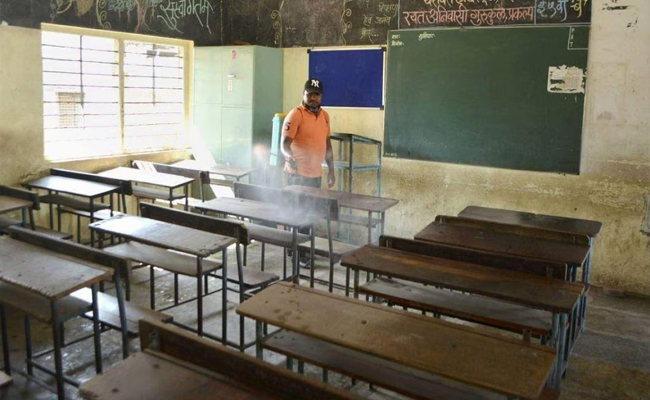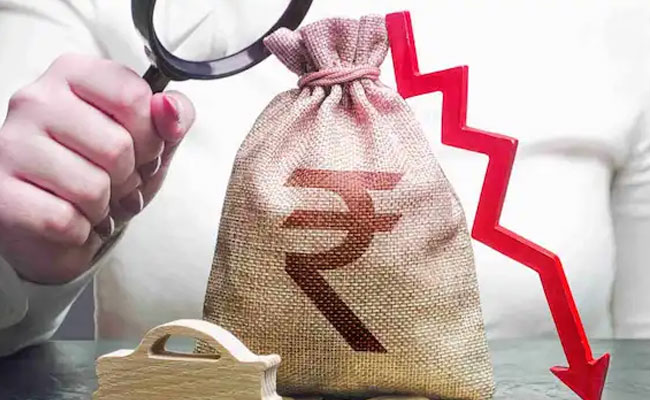Bengaluru: In a concerning trend for the city's education sector, at least 762 private schools in Bengaluru have closed down over the past five years, a staggering 26 percent of those granted permission to operate, according to government data.
Between 2019-20 and 2023-24 academic years, the Department of School Education and Literacy gave the green signal to start 2,905 private unaided schools, of which 762 closed down.
The data, as cited by Deccan Herald on Sunday, shows significant discrepancies across districts. While Vijayapura saw the highest number of new schools at 292, only five closed. In stark contrast, Bengaluru South saw 255 new schools, with 85 shutting down within five years. In Bengaluru North, the number of schools permitted were 75, and 56 of them shut down within five years of commencement.
School managements are attributing the closures to rigid norms imposed by the department after 2018, alongside what they describe as harassment by local officers. D. Shashi Kumar, general secretary of the Associated Management of Primary and Secondary Schools in Karnataka, told DH that one of the key obstacles has been the mandatory requirement of half-an-acre land for new schools, which many find financially unfeasible. Additionally, he noted that schools now must navigate multiple departments, including fire safety and building plan approvals, compared to the previous single-point contact with the education department. He further mentioned that they have submitted petitions to the government numerous times about harassment.
Private school representatives said a majority of the schools which closed down were budget schools affiliated to the state board, the report added. The COVID-19 pandemic also contributed to these closures, disrupting the demand and supply chain, especially in cities like Bengaluru, which has a huge migrant population. The exit of migrant families led to a sharp drop in student enrolments, especially in budget private schools. The rising cost of establishing a new school—at least Rs 20 crore—and the challenge of maintaining a minimum student strength have further added to the burden on school managements.
Another factor cited by private school managements was the rise in the number of chain (franchisee) schools and the entry of corporates into the education sector. “Parents are attracted towards other board schools and so-called corporate and fancy chain schools,” management representative of a private school in the capital city was quoted as saying by the publication.
He added that the increase in the number of CBSE and ICSE schools has also contributed to the closure of state board schools, which, according to him, face discrimination at the local level compared to other boards.
Let the Truth be known. If you read VB and like VB, please be a VB Supporter and Help us deliver the Truth to one and all.
Mumbai (PTI): The rupee depreciated 27 paise to 90.95 against the US dollar in early trade on Friday, weighed down by a strong American currency and higher crude oil prices due to the escalated geopolitical tension.
A selling rush in domestic equities further pressured the Indian currency, forex traders said.
At the interbank foreign exchange, the rupee opened at 90.94 and slipped further to trade at 90.95 against the greenback in early deals, losing 27 paise from its previous closing level.
The rupee rose 4 paise to settle at 90.68 against the US dollar on Wednesday. The currency exchange markets were closed on Thursday on account of Chatrapati Shivaji Maharaj Jayanti.
Meanwhile, the dollar index, which gauges the greenback's strength against a basket of six currencies, was trading 0.04 per cent higher at 97.89.
Brent crude, the global oil benchmark, was trading 0.14 per cent higher at USD 71.77 per barrel in futures trade.
Analysts attributed the strengthening dollar and crude prices to heightened tension between the US and Iran, with both countries signalling they are prepared for war if talks on Tehran's nuclear programme fizzle out.
On the domestic equity market front, Sensex fell 150.35 points to 82,347.79 in early trade while the Nifty declined 35.15 points to 25,419.20.
On Thursday, foreign institutional investors offloaded equities worth Rs 880.49 crore, according to exchange data.



_vb_94.jpeg)

